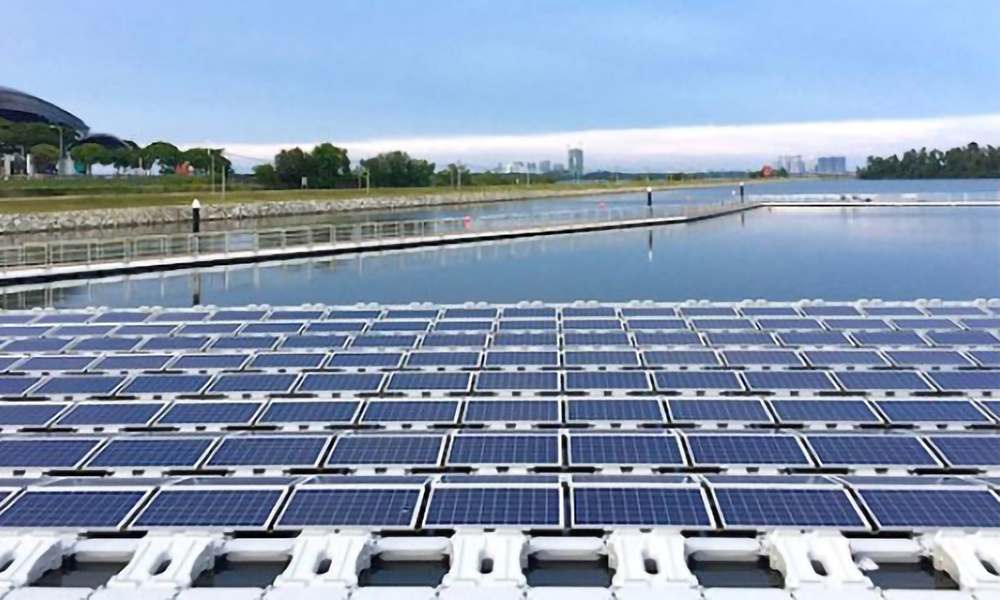The Dubai Electricity and Water Authority (DEWA) has issued a request for proposal (RFP) for firms to conduct studies for the development and delivery of floating solar photovoltaic (PV) plants in the Arabian Gulf.
The scope of work includes a feasibility study, the technical requirements for a floating solar PV plant, an environmental impact assessment report, a study of the marine requirements, and other necessary studies on setting up electrical transmission besides a safety plan, and seawater feasibility studies including tidal and system specifications, and system performance.
According to a statement from DEWA, the new initiative aligns with the objectives of the Dubai Clean Energy Strategy 2050 (DCES 2050). The strategy seeks to diversify Dubai’s energy mix, position the emirate as a global hub for clean energy and green economy, and aims to source 75% of Dubai’s total power output from clean energy by 2050.
“At DEWA, we work in line with the vision of HH Sheikh Mohammed bin Rashid Al Maktoum, Vice President and Prime Minister of the UAE and Ruler of Dubai, to achieve economic, social, and environmental sustainable development and preserve natural resources within the framework of federal and local strategies, including the UAE Vision 2021, UAE Centennial 2071, the Dubai Plan 2021, and the DCES 2050, as directed by His Highness, to make Dubai the city with the lowest carbon footprint in the world by 2050,” said Saeed Mohammed Al Tayer, MD and chief executive of DEWA.
According to Al Tayer, achieving the objectives of the Dubai Clean Energy Strategy 2050 will require a production capacity of 42,000 megawatts (MW) of clean and renewable energy by 2050.
“We launch innovative initiatives and solutions in line with our vision to provide an innovative and sustainable world for generations to come. Floating PV systems are one of the most prominent emerging technologies that rely on installing solar photovoltaic systems directly above water,” he added.
Al Tayer concluded, “DEWA launched several ambitious initiatives and projects to achieve these objectives, including the Mohammed bin Rashid Al Maktoum Solar Park. This is the largest single-site solar park in the world, based on the independent power project (IPP) model, with a planned capacity of 5,000MW by 2030 at a total investment of Dh50 billion ($13.6 billion).”

